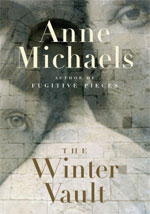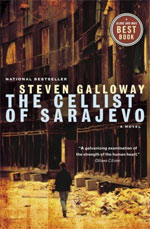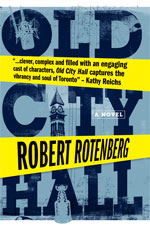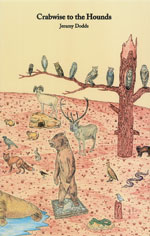
“It is our displacement that binds us.”
This haunting, subtly textured, absorbing read from Anne Michaels was worth the long, long wait post-Fugitive Pieces. Is Anne Michaels perhaps Canada’s Marilynne Robinson? Both have a modest number of titles, new titles from both are hugely anticipated, and both always richly reward their readers with tender, acute, precised crafted explorations of the human heart.
The Winter Vault starts slowly to build the layers of imagery that tell the central story of Avery and Jean Escher, and that of their parents and others that touch their lives. All of the imagery and all of the intertwined stories deal with displacement – by war, by water (through the striking juxtaposition of the building of the St. Lawrence Seaway and the Aswan Dam in Egypt), by heartbreak and by enduring love. Although it builds gradually at first, the rich layering of themes and images gains momentum and lends emotional depth and resonance to the central story of how Avery and Jean come together, are torn apart by personal tragedy, and then find their way back to each other. (Hmm, is that a spoiler?)
With all of the examples of displacement throughout the story, it’s interesting that Michaels selects the image of the winter vault (a temporary crypt for those who die in the winter and cannot be buried until the earth thaws again in the spring) as the title. It gives the sense that the winter vault preserves something precious, gives it the dignity it deserves, and protects it until warmth and new life – the advent of spring – can provide a permanent home. The grave as a final, peaceful home is an affecting and wholly appropriate symbol for this story.
See also:
materfamilias reads – Review of Anne Michaels’ The Winter Vault







